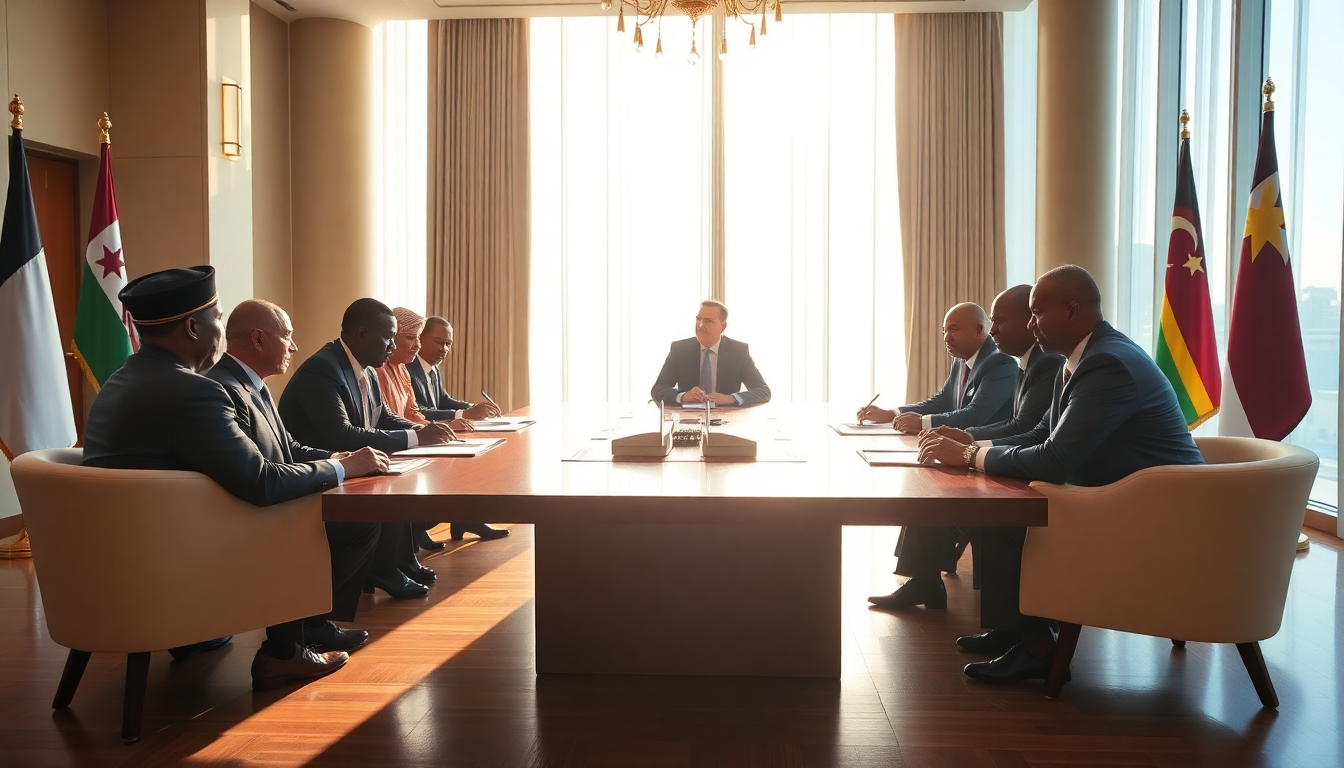Table of Contents
In a significant diplomatic breakthrough, Qatar has stepped in to mediate a peace agreement between Rwanda and the Democratic Republic of the Congo (DRC). This agreement is set to play a crucial role in boosting regional stability and security after a long stretch of conflicts, largely fueled by armed groups. The peace deal is the result of numerous negotiation sessions—some even held in Doha—showing Qatar’s dedication to fostering dialogue in international disputes.
Overview of the Peace Agreement
Recently signed in Washington, DC, this peace agreement has garnered support from both the United States and Qatar, marking a crucial moment in the ongoing tensions between Rwanda and the DRC. The deal includes provisions for the withdrawal of Rwandan troops from the DRC, as well as frameworks to enhance trade and security cooperation between the two nations. Qatari diplomat Mohammed bin Abdulaziz al-Khulaifi emphasized the importance of sticking to the terms of the agreement, aiming to cultivate an atmosphere of peace and security in the region.
The backdrop to this agreement features a series of talks that followed a key meeting between Congolese President Felix Tshisekedi and Rwandan President Paul Kagame, hosted by Qatar’s Emir back in March. This pivotal meeting laid the groundwork for further negotiations, ultimately leading to the current peace deal. Al-Khulaifi highlighted Qatar’s strong relationships with both nations, which helped it become a trusted mediator, showcasing Doha’s ability to provide a neutral ground for dialogue.
Qatar’s Diplomatic Strategy and Commitment
Qatar’s role in this peace agreement reflects its broader diplomatic strategy, focusing on mediation as a cornerstone of its foreign policy. Al-Khulaifi articulated Qatar’s belief that dialogue is essential for resolving conflicts, asserting that the nation is dedicated to mediation efforts, even with countries that are geographically distant. This approach has been evident in Qatar’s previous diplomatic interventions in various international conflicts, earning it a reputation as a reliable mediator.
In the context of the DRC, this agreement holds the promise of ending ongoing violence, especially concerning the Rwanda-backed M23 armed group, which has been making advances in the resource-rich eastern regions of the DRC. The resurgence of conflict has raised alarms reminiscent of the devastating wars in the late 1990s, which involved multiple African nations and resulted in immense human suffering. Thus, this peace agreement stands as a beacon of hope for millions affected by instability in the region.
Looking Ahead: Prospects for Peace and Stability
With the United States, Qatar, the African Union, and Togo pledging to ensure the implementation of the agreement’s terms, there is a sense of cautious optimism about what lies ahead. If successfully executed, this deal could serve as a template for resolving similar conflicts in the region, promoting a culture of dialogue and cooperation over hostility. Al-Khulaifi expressed a commitment to continue engaging in diplomatic efforts aimed at de-escalating tensions and nurturing lasting peace.
As the situation unfolds, the international community will be watching closely to see how both nations uphold their commitments under the agreement. The hope is that this peace initiative will not only stabilize the DRC but also contribute to a more peaceful and prosperous East African region overall. Qatar’s proactive role in these negotiations and its willingness to facilitate dialogue among conflicting parties illustrate the significant impact that diplomacy can have in tackling complex international issues.


